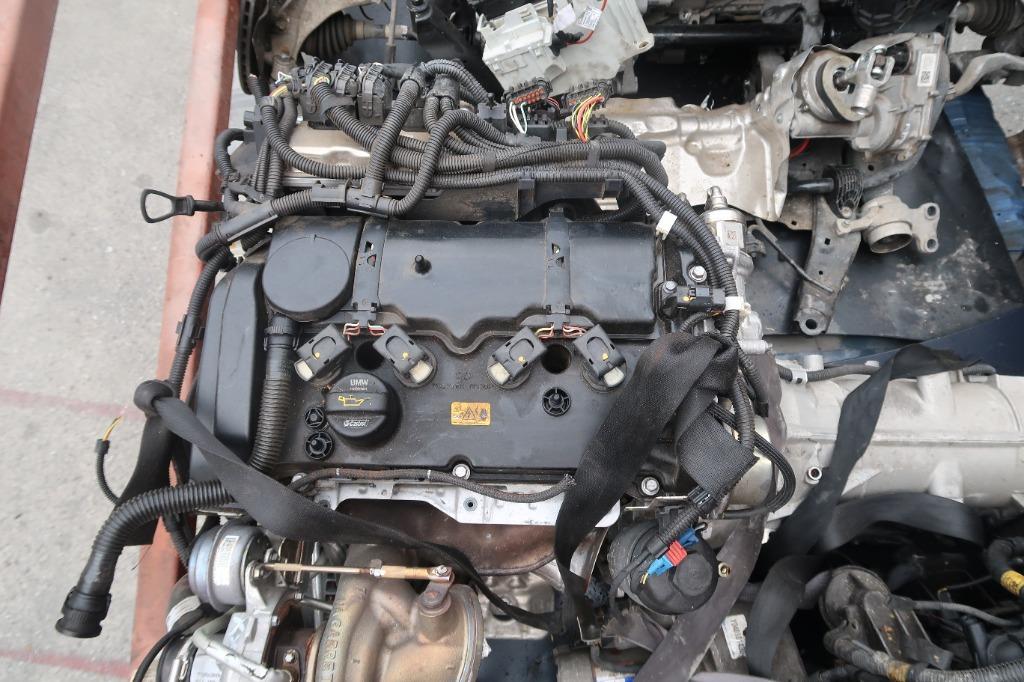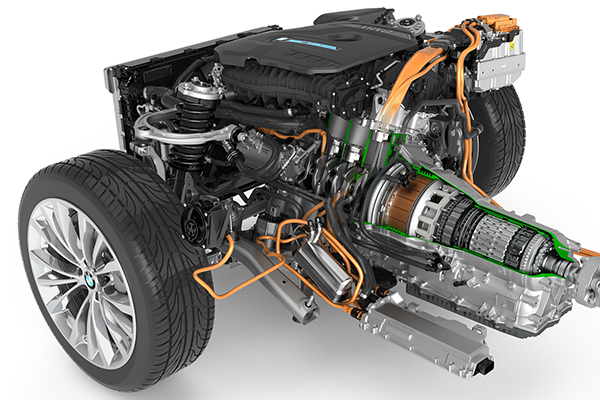Expert Tips on BMW N13 Engine Running Smoothly and Efficiently
Expert Tips on BMW N13 Engine Running Smoothly and Efficiently
Blog Article
Exploring the Performance and Specs of the BMW N13 Engine: A Comprehensive Guide
The BMW N13 engine, introduced in 2011, represents a considerable development in auto engineering, defined by its turbocharged inline-four design and sophisticated innovation. What insights can be amassed from a detailed analysis of this engine's applications and dependability?
Review of the BMW N13 Engine
The BMW N13 engine, which debuted in 2011, is a turbocharged inline-four powertrain created to deliver both efficiency and performance. This engine is component of BMW's modular engine household and was primarily presented in the BMW 1 Collection and 3 Collection models, to name a few. With an emphasis on density and weight reduction, the N13 engine incorporates sophisticated engineering methods that enhance its overall performance.
The N13 engine employs a twin-scroll turbocharger, which enhances airflow and minimizes turbo lag, causing a responsive driving experience. Its straight gas injection system more adds to boosted gas economic situation and minimized discharges, aligning with contemporary environmental criteria. The engine includes a robust aluminum block and aluminum DOHC cylinder head, which promotes resilience while also lessening weight.
Furthermore, the N13 is developed with an equilibrium of power and effectiveness in mind, offering enough horse power for perky driving without endangering fuel usage. This twin focus makes it an eye-catching choice for those looking for a dynamic driving experience together with usefulness. In general, the BMW N13 engine represents an innovative mix of modern technology and performance, establishing a benchmark in its course.
Key Requirements and Functions
With a concentrate on efficiency and performance, the BMW N13 engine flaunts remarkable specifications that highlight its engineering excellence. This inline-four engine features a displacement of 1.6 liters and utilizes a turbocharger to improve power outcome while preserving gas efficiency. The N13 engine is set up with a DOHC (Twin Expenses Camshaft) configuration and uses Valvetronic innovation for variable shutoff timing, adding to ideal efficiency across various driving conditions.
Secret requirements consist of an optimal power output of about 136 horse power at 4,500 RPM and a peak torque of around 220 Nm available from 1,250 to 4,300 RPM. This engine is designed with a lightweight light weight aluminum construction, making sure reduced weight and boosted thermal effectiveness. Furthermore, the N13 engine works with both fuel and bio-fuels, enabling for convenience in gas alternatives.
The engine is coupled with either a 6-speed manual or a 7-speed dual-clutch automatic transmission, enabling smooth gear changes and enhancing the general driving experience - BMW N13 Engine. With these crucial requirements and features, the BMW N13 engine exhibits a blend of efficiency, performance, and contemporary design, making it a notable option in the vehicle market
Performance Capacities and metrics

The N13 engine features BMW's Twin Scroll turbocharging technology, which improves throttle feedback and minimizes turbo lag, giving a seamless power delivery. Its sophisticated direct fuel shot system enhances combustion effectiveness, adding to boosted gas economic situation and reduced discharges, important for meeting modern-day ecological requirements.

Applications in BMW Models

In the 1 Collection, the N13 engine supports versions such as the 114i and 116i, providing perky velocity while preserving good fuel economy. The engine's receptive turbocharging enhances the driving experience, making it appropriate for city travelling and vibrant driving circumstances. Likewise, in the 3 Series, the N13 is utilized in the 316i variant, where it adds to an all-round efficiency profile that lines up with BMW's online reputation for sporty yet practical automobiles.
Past these core models, the N13 engine has likewise been included in different MINI lorries, even more showing its adaptability and efficiency. The integration of this engine throughout different platforms highlights BMW's commitment to development and performance, guaranteeing that clients obtain a polished driving experience no matter version choice. This flexibility marks the N13 engine as a substantial part of BMW's engineering portfolio.
Upkeep and Reliability Insights
Ensuring the longevity and performance of the BMW N13 engine requires regular maintenance and focus to particular parts. Key areas that require routine evaluation consist of the oil and cooling down systems, as these straight influence engine efficiency and overall dependability. Engine oil should be transformed at intervals recommended by BMW, generally every 10,000 to 15,000 kilometers, using high-quality artificial oils to protect against wear and deposits.
The N13 engine is also understood for its turbocharged arrangement, which requires cautious surveillance of the turbocharger's wellness. Normal look for boost leaks and wastegate function can avoid possible failures. In addition, the timing chain ought to be evaluated periodically, as Home Page it is known to experience wear over time, which can result in serious engine damages otherwise resolved without delay.
Moreover, electronic elements and sensors should not be neglected; routine diagnostics can assist in recognizing any kind of issues before they rise. Abiding by an organized upkeep routine and using OEM parts for replacements will considerably boost the engine's reliability, making certain that it stays a robust entertainer throughout its lifespan. Eventually, persistance in upkeep will certainly not just promote performance but likewise extend the engine's functional life.
Conclusion
To conclude, the BMW N13 engine exemplifies innovative design with its turbocharged inline-four configuration, delivering a blend of power and efficiency. Its specs highlight a durable performance range appropriate for different BMW and MINI models. BMW N13 Engine. The unification of innovative modern technologies, such as twin-scroll turbocharging and straight fuel injection, emphasizes its commitment to reducing discharges while enhancing driving dynamics. Routine upkeep is vital for maintaining the engine's efficiency and longevity, ensuring it continues to be an affordable selection in the automobile market.
The BMW N13 engine, which debuted in 2011, is a turbocharged inline-four powertrain made to supply both efficiency and performance.With an click for more info emphasis on efficiency and performance, the BMW N13 engine boasts excellent requirements that highlight its design quality.Building upon the remarkable specifications described, the efficiency metrics and capabilities of the BMW N13 engine further illustrate its staminas in real-world applications. Generally, the BMW N13 engine showcases a compelling combination of performance and effectiveness, making it a noteworthy challenger in the compact engine section.
Making certain the longevity and efficiency of the BMW N13 engine needs routine upkeep and focus to specific parts.
Report this page